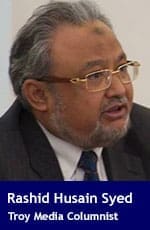IEA mandate has shifted from energy security to championing renewables and climate action
 The International Energy Agency (IEA), the Organisation for Economic Co-operation and Development (OECD) energy watchdog, and the Organization of Petroleum Exporting Countries (OPEC) are in substantial disagreement about how much oil the world will need in the future. According to Reuters, this disagreement over future energy demand raises doubts about the accuracy of current predictions.
The International Energy Agency (IEA), the Organisation for Economic Co-operation and Development (OECD) energy watchdog, and the Organization of Petroleum Exporting Countries (OPEC) are in substantial disagreement about how much oil the world will need in the future. According to Reuters, this disagreement over future energy demand raises doubts about the accuracy of current predictions.
In February, the IEA forecasted a 1.22 million barrels per day (bpd) increase in demand for 2024, whereas OPEC’s February report predicted a 2.25 million bpd rise. This difference amounts to approximately one percent of global demand. A Reuters analysis of 16 years of monthly reports from both organizations revealed that the 1.03 million bpd difference in February represented the largest gap in terms of barrels per day over the intervening period.
OPEC and the IEA also disagree over the medium term. The IEA expects oil demand to peak by 2030 as the world switches to cleaner fuels. OPEC dismisses that view and reiterated its forecast that it will not peak until 2045, citing expected growth outside industrialized OECD nations and “pushback on some initial net-zero policies.”
 |
| Related Stories |
| IEA warns of slowing oil demand growth in 2024 but OPEC begs to differ
|
| OPEC is caught between a rock and a hard place
|
| The IEA vs. OPEC: Who’s right on the future of oil?
|
Reuters’ report has sparked a heated debate over the two organizations’ contrasting demand projections, prompting an intriguing question: Which is accurate?
Before delving into the specifics, it’s important to underline that both organizations have distinct roles. OPEC represents leading global petroleum exporters, while the IEA primarily serves major energy consumers. Their missions are fundamentally different. The IEA, established in the aftermath of the 1973 Arab oil embargo and crisis, was founded to advocate for the interests of the world’s major energy consumers. By contrast, OPEC is tasked with safeguarding the interests of producers. Therefore, it’s natural to expect a perception gap between the two entities.
Throughout their existence, the organizations have clashed on numerous occasions. I vividly remember the tumultuous period in mid-2008 when global oil prices were nearing the US$150 per barrel mark. Consumers were urging oil producers to increase supply, while figures like Ali Naimi, then-Saudi petroleum minister, declared to a packed hall in Riyadh during the Global Oil Summit convened by King Abdullah of Saudi Arabia that there was already enough oil available. He insisted that oil would be made available to those who needed it, asserting there was no need to increase supply further. The IEA and OPEC found themselves caught between these opposing viewpoints. I personally witnessed the unfolding drama during that time.
But then the scenario changed. Despite their differences, relations between the two organizations improved noticeably over the following 15 to 20 years. On numerous occasions, they reached a consensus on several important matters.
But then another shift occurred. For nearly two decades now, the IEA has redirected its focus from energy security for consumers to promoting renewables and climate action to help its members accelerate the shift to renewable energy and a low-carbon economy.
By contrast, OPEC members, who depend on fossil fuel revenue, face potentially catastrophic economic consequences from a rapid transition away from oil. To them, this is simply a death warrant.
OPEC strongly feels that the IEA’s newly adopted mandate – away from the interests of consumers to the Western industrial world’s perceived needs – is undermining its role as an impartial authority. “They have moved from being a forecaster and assessor of the market to one practising political advocacy,” Saudi Arabia’s Energy Minister Prince Abdulaziz bin Salman said last September.
Toronto-based Rashid Husain Syed is a highly regarded analyst specializing in energy and politics, with a particular emphasis on the Middle East. In addition to his contributions to local and international newspapers, Rashid frequently lends his expertise as a speaker at global conferences. Organizations such as the Department of Energy in Washington and the International Energy Agency in Paris have sought his insights on global energy matters.
For interview requests, click here.
The opinions expressed by our columnists and contributors are theirs alone and do not inherently or expressly reflect the views of our publication.
© Troy Media
Troy Media is an editorial content provider to media outlets and its own hosted community news outlets across Canada.

